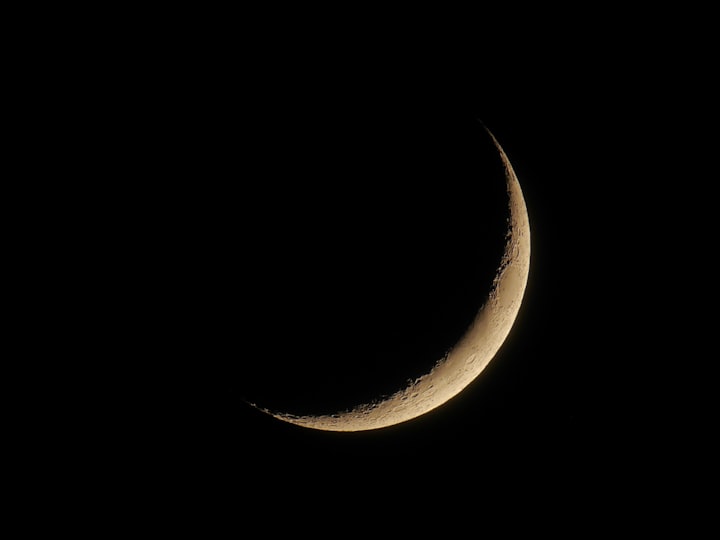Celebrating Eid ul-Adha: A Time of Sacrifice, Faith, and Unity
Embracing the Spirit of Eid ul-Adha and Its Significance in Islam

Introduction:
Eid ul-Adha, also known as the Festival of Sacrifice, is one of the most important religious observances in Islam. This joyous occasion commemorates the willingness of Prophet Ibrahim (Abraham) to sacrifice his son as an act of obedience to God. As Muslims around the world come together to celebrate Eid ul-Adha, it is a time of reflection, gratitude, and unity. This article explores the significance of Eid ul-Adha and its traditions, highlighting the values of sacrifice, faith, and community that lie at its core.
1. The Story of Prophet Ibrahim:
Eid ul-Adha revolves around the remarkable story of Prophet Ibrahim's unwavering faith and obedience to God. By willingly submitting to God's command to sacrifice his beloved son, Prophet Ibrahim demonstrated the utmost devotion and trust. The story serves as a reminder of the importance of surrendering to the will of God and placing faith above all else.
2. The Symbolism of Sacrifice:
Eid ul-Adha is marked by the sacrifice of an animal, such as a sheep, goat, or cow. This act of sacrifice symbolizes Prophet Ibrahim's willingness to sacrifice his son and serves as a reminder of the significance of selflessness and giving. It encourages Muslims to reflect on their own acts of sacrifice, whether it be in the form of donating to the less fortunate, volunteering their time and resources, or sacrificing their own desires for the greater good.
3. Strengthening Faith and Connection with God:
Eid ul-Adha is a time for Muslims to deepen their connection with God through prayer, fasting, and engaging in acts of worship. It is an opportunity to renew one's faith, seek forgiveness, and strengthen the bond with the Creator. Through acts of devotion, Muslims find solace, spiritual rejuvenation, and a sense of purpose.
4. Embracing Generosity and Charity:
Eid ul-Adha promotes the values of generosity and charity. Muslims are encouraged to share the joy of the occasion by giving to those in need. This includes donating food, money, or clothing to the less fortunate, ensuring that everyone can partake in the festivities. The act of giving fosters compassion, empathy, and a sense of social responsibility.
5. Fostering Unity and Community Spirit:
Eid ul-Adha brings communities together, fostering a sense of unity and togetherness. Muslims gather for prayers at mosques or designated prayer grounds, share meals with family and friends, and exchange greetings and gifts. It is a time to reconcile differences, strengthen relationships, and promote harmony within the community. The spirit of Eid ul-Adha reminds Muslims of their shared values and the importance of coming together as one ummah (community).
6. Reflection and Gratitude:
Eid ul-Adha is a time of reflection and gratitude for the blessings bestowed upon individuals and their families. It is an opportunity to appreciate the provision of sustenance, good health, and the love and support of loved ones. Muslims are encouraged to reflect on their own lives, express gratitude to God, and extend gratitude to others.
7. Family Bonding and Traditions:
Eid ul-Adha is a time for families to come together and strengthen their bonds. It provides an opportunity for relatives, both near and far, to gather and celebrate. Families engage in various traditions, such as preparing special meals, exchanging gifts, and visiting relatives. These activities promote a sense of belonging, love, and unity within the family unit.
8. Spiritual Reflection and Renewal:
Eid ul-Adha encourages Muslims to engage in deep spiritual reflection and renewal. It is a time to assess one's actions and seek forgiveness for past mistakes. Muslims are encouraged to evaluate their moral character, engage in self-improvement, and make a renewed commitment to living a righteous life. This introspective process allows individuals to grow spiritually and strive towards becoming better human beings.
Conclusion:
Eid ul-Adha is a significant occasion in the Islamic calendar, celebrated with deep devotion, joy, and gratitude. It is a time to commemorate Prophet Ibrahim's sacrifice, strengthen faith, and embrace the values of sacrifice, generosity, unity, and gratitude. As Muslims come together to celebrate Eid ul-Adha, they are reminded of the importance of these values in their daily lives and their commitment to serving God.
About the Creator
Lomat Al Noor
My goal is to captivate readers and provide them with valuable insights and knowledge. I am dedicated to delivering content that informs, inspires, and entertains.






Comments
There are no comments for this story
Be the first to respond and start the conversation.